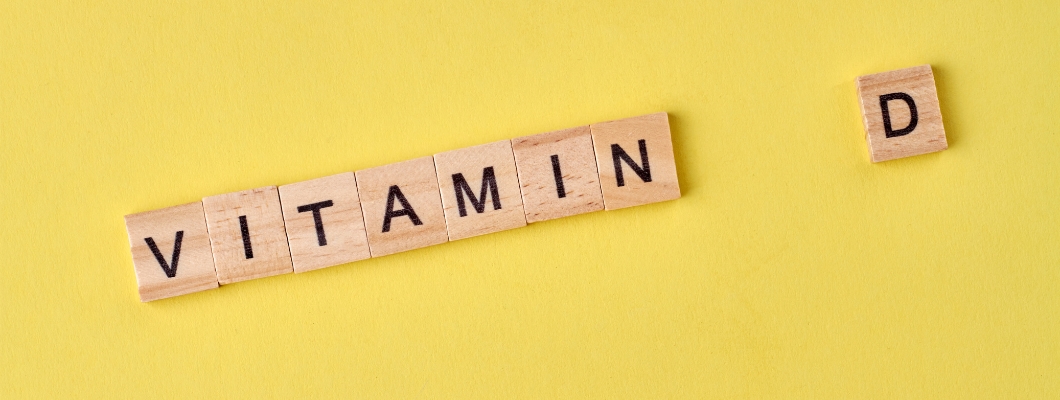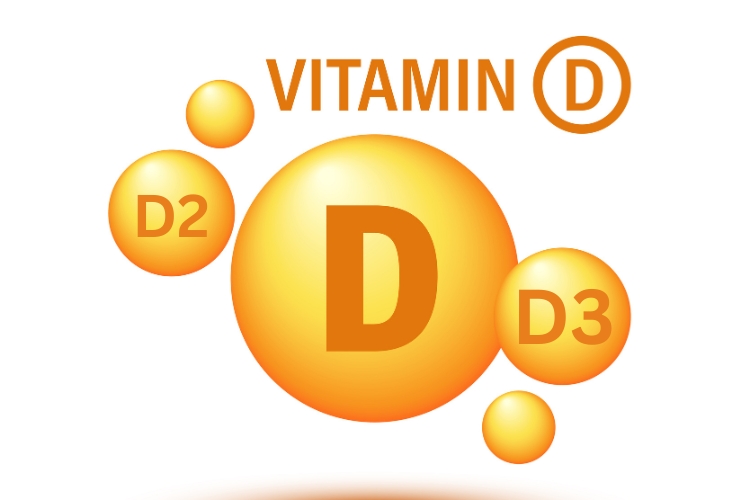Vitamin D and Vitamin D3 - What's the Difference?

What is Vitamin D?
Vitamin D is a fat-soluble vitamin that is essential for human health. It is often called the "sunshine vitamin" because the body us can produce it when the skin is exposed to ultraviolet light from the sun. Vitamin D is a vital element for the efficient functioning of our muscles and organs, such as the heart, lungs, brain and liver. The vitamin is especially useful for athletes and people who lead an active and healthy lifestyle. It has two forms: ergocalciferol (D2) and cholecalciferol (D3).
1. What are the differences between Vitamin D2 and Vitamin D3?

Vitamin D2 and vitamin D3 are two different forms of vitamin D. The biggest difference between them is their origin and effectiveness:
- Vitamin D2 (ergocalciferol) – Vitamin D2 is synthesized in plants, fungi and yeast when they are exposed to ultraviolet light. It is also called "plant vitamin D" or "vegan vitamin D". It is used in nutritional supplements and foods intended for people following a vegan or vegetarian diet.
- Vitamin D3 (cholecalciferol) – Vitamin D3 is found in animal products such as fish, meat and eggs, and is also synthesized in the human body when our skin is exposed to UVB light from the sun. It is considered more effective than D2 in maintaining normal levels of vitamin D in the body.
2. Which form should we choose in case of Vitamin D deficiency?
The choice between vitamin D3 and vitamin D2 depends on your individual needs and preferences (diet, lifestyle, health status, etc.).
It is important to note that vitamin D2 is not considered as effective and bioactive as vitamin D3, which is more commonly used in nutritional supplements because it is more easily absorbed by the body.
Before you start taking vitamin D, it's a good idea to consult your personal doctor - he will be able to determine the dosage and type that are most suitable for you and your needs. Self-medication can lead to vitamin D overdose, which is linked to a number of health problems.
Symptoms of Vitamin D deficiency in the body

Vitamin D deficiency, also known as hypovitaminosis D, can cause a variety of symptoms and health problems. Here are some of the common symptoms of vitamin D deficiency:
- Weakness and tiredness - May cause a feeling of constant tiredness and weakness.
- Loss of bone density - Vitamin D deficiency can contribute to decreased bone density, bone pain, and an increased risk of bone fractures.
- Dental problems - Low levels of vitamin D can lead to dental disease and tooth enamel problems.
- Weak immune system - Vitamin D plays an important role in the immune system and its deficiency can increase the risk of infections and diseases.
- Muscle aches - People with vitamin D deficiency often complain of a feeling of fatigue and muscle aches.
These symptoms are not specific to vitamin D deficiency and can also be due to other health problems. If you experience these symptoms it is important to consult your doctor.
